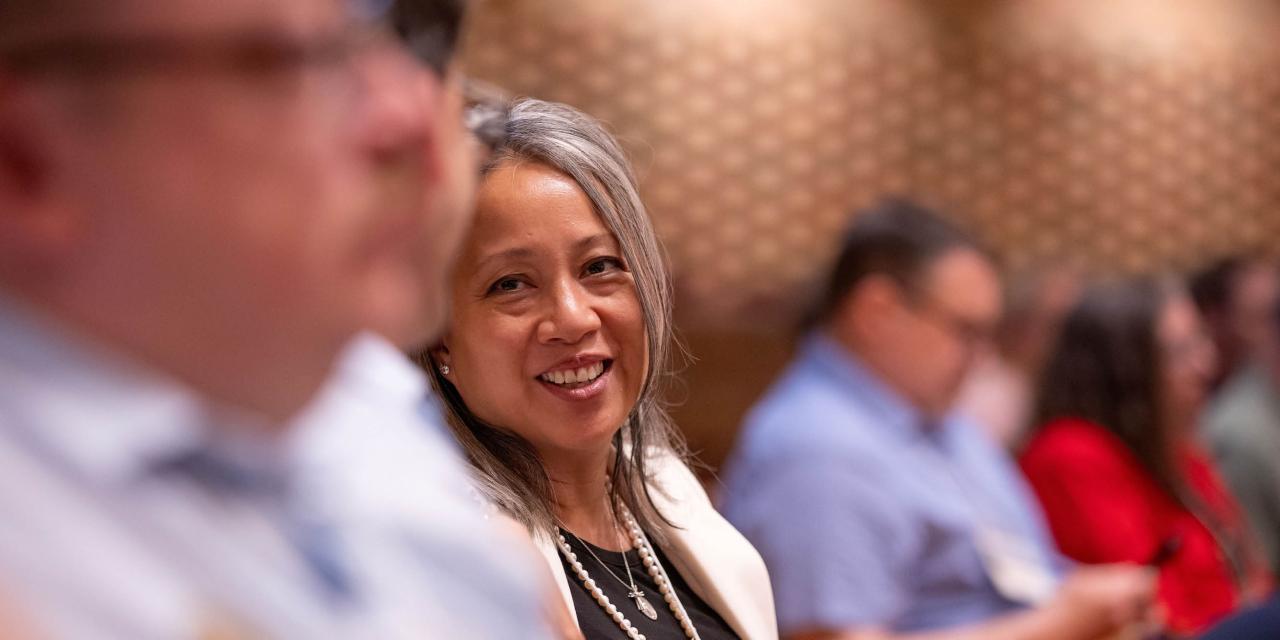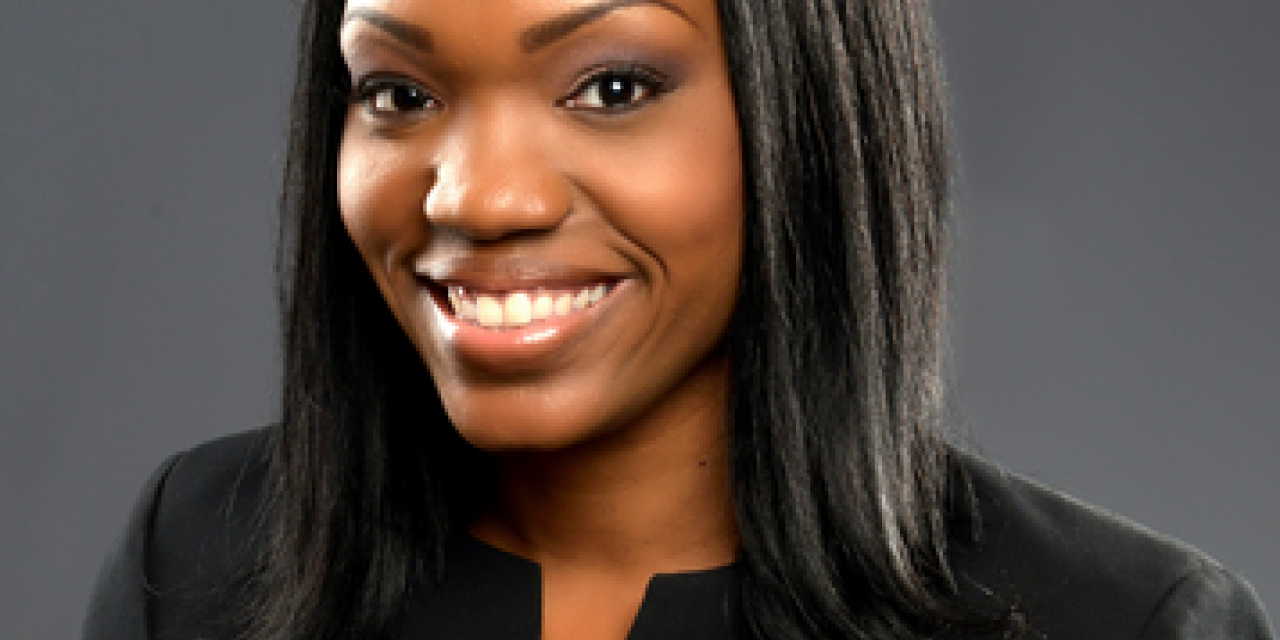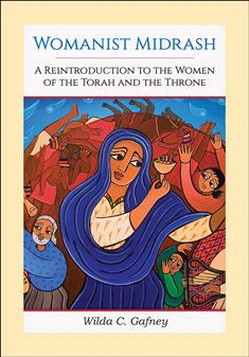
In this Strengthening Preaching blog series, preachers from a range of Christian traditions and denominations reflect on their growth as preachers through their involvement in the Strengthening Preaching initiative of Lilly Endowment Inc., which is coordinated by the Calvin Institute of Christian Worship. At the heart of the initiative are preaching peer groups, sponsored by various seminaries, which engage preachers in reading, discussion, preaching, and feedback—all within a collegial circle of support. Melissa Champs participated in a peer learning group sponsored by Northern Seminary. 
When I was a young woman and a praise-and-worship leader in the church, I never thought my voice would be heard outside of singing. I never imagined my words would have the power to pierce the stoniest foundations. I never thought I’d have the God-given passion to address topics that mattered to others. Had I not begun my preaching journey by participating in a peer group in seminary, I might still feel the same way.
When I chose to attend seminary, I wasn’t entirely sure of my reasons. I saw pursuing an education as a vital component of being equipped, and I valued being prepared and equipped to serve. I also knew that people put stock in credentials. Yet the more I grew in the Lord, the more I realized that the preparation is what’s important, not the credentialing. My preaching peer group helped me gain that awareness.
As I reflect on my life today, it strikes me that I am struggling to hold two realities in tension. The first reality is that I’ve recently accepted the call to preach, and many in my community are unaware of that. The second is that once upon a time I believed what the system of patriarchy told me: “Women can’t be preachers.” Though I had never desired to preach, it was clear that because I am a woman, I wasn’t supposed to.
In seminary, I discovered that one’s theology heavily affects one’s voice. My theology was firmly built on the understanding that women were not chosen by God to preach. Both male and female voices I grew up with ingrained this in me, whether by what they said explicitly or by what they did not say.
The psychological implications of this message were severe. Through my studies I learned that women “have been psychologically shaped so as to internalize the idea of their own inferiority” (Gerda Lerner, The Creation of Patriarchy). Many of us have participated in the process of our own subordination for more than 4,000 years, Lerner says.
This new understanding and my lived experiences reshaped my ideals. Because of my newly felt call to preach, my theology had to change so I could find my voice—one reflective of my experiences as I journey through life with Christ and embodying his Word with others.
Reforming my story
In her book Womanist Midrash: A Reintroduction to the Women of the Torah and the Throne, Wilda C. Gafney uses an exegetical technique that she, as an African American woman using a rabbinic form of interpretation, calls “womanist midrash.” This approach asks questions of the text from a womanist perspective, illuminating the women of the Bible in a new way.
“Womanist midrash listens to and for [women’s] voices in and through the Hebrew Bible, while acknowledging that often the text does not speak, or even intend to speak, to or for them, let alone hear them,” Gafney writes. She takes us on a journey that continually pulls women from the crevices of the biblical narrative.
Similar to the way Gafney exegetes the stories of the women of the Old Testament, giving new life and meaning to their historical existence, my seminary peer group—with its affirmations, evaluations, and acknowledgment of my gifts—helped me reform the story I knew about myself and about women preachers everywhere.
The seminary peer group model is designed to encourage collaboration. After spending time in the Word individually, my group would come together and share the direction toward which the Spirit led each of us during our sermon prep time. We would also share the struggles we were having with the text.
The group setting allowed the Holy Spirit to stir up various gifts within each of us to assist our brothers and sisters as they labored in God’s Word. We found “thought partnerships” with one another and welcomed feedback and critique from each other. We encouraged one another and affirmed the gifts we saw. We operated in love, and that made the experience a pleasant one.
A second part of the peer mentoring process allowed us to gain preaching experience. We took turns preparing outlines and manuscripts and delivering sermons to the group. We evaluated our peers and shared the insights we gained while experiencing the preacher in action. Through this process, I came to a major turning point in my preaching ministry and received important insights that helped me hone my skill set.
A pivotal experience
One experience was particularly pivotal for me. For each sermon presented to our peers, we had to produce a manuscript, yet each sermon was to be delivered differently. Two could be delivered from notes or a manuscript, and one had to be delivered from memory.
The thought of preaching from memory terrified me, but my peer group helped me through it. As I prepared my notes, my peers helped me see I had way too much material for one sermon. I was acting as if I had one shot at preaching the entire Bible. I’m sure this was connected to my former ideology of women and preaching—I honestly didn’t know if I’d get another chance, so I wanted to share everything the Holy Spirit had given me. But I soon learned that what the Holy Spirit gives you in your prep time is there to inspire what he’ll present to the people through you when you preach.
Comments from my peer group helped me zero in on the gifts God has given me. Though I didn’t know it at the time, preparing a sermon outline helps me commit the concepts to memory.
I remember once preaching from a pretty robust outline. As I spoke, I lost my place in the outline and found myself struggling to get back on track. My peer group recognized the problem and gave me valuable feedback. They affirmed the knowledge I possessed and the Holy Spirit’s presence with me, and they encouraged me to let my words flow from those things, not from a manuscript or outline. I gave it a try the next time I preached and was amazed by the outcome!
As a result, I no longer bring a full manuscript or a detailed outline to the pulpit when I preach. A few points are enough to guide my thoughts as I speak. Some preachers use manuscripts effectively, but my skill set calls for something different. My peer group helped reveal this to me.
Most humans, in our engagement with others, have a need for affirmation. Though self-affirmation is also worthwhile, we sometimes have gifts and skills embedded within us that we need others to call out because they contradict our norms or invade our comfort zone. When those abilities are identified, we should cultivate them and seek to understand the proper direction to take in response. And that is much easier to do in a group than alone.
I now have a refined view of community and its ability to help shape individuals along the way. My training throughout seminary was a catalyst for my receiving this knowledge and becoming who God has called me to be. My peer preaching group had a significant influence along the journey. The group introduced me to the idea of having a preaching community to share and prepare with. At first I did not see the value in this, but as I grew, I realized that peer groups can encourage outcomes that would take a preacher longer to achieve alone.
LEARN MORE
Read So Much Better: How Thousands of Pastors Help Each Other Thrive, an examination of the impact of pastor peer groups.
Read Womanist Midrash: A Reintroduction to the Women of the Torah and the Throne.
Explore preaching and ministry resources from the Center for Excellence in Preaching.


